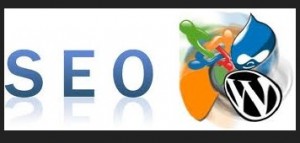The CMS or content management system is an open source software platform for the installation of personal websites, blogs, business websites and other types of websites. The CMS is easily managed by anyone even without technical knowledge of the CMS. The most popular CMSs are Joomla, WordPress, Magento, Drupal, Google Blogger and Silver CMS. Because of this ease of operation and the affordability of using one, they have become very popular with many including mid-level and small companies.
With lots of different CMS platforms available, there’s a solution for pretty much every sort of site.
However they each have their own set of features, method and history, so choosing the best CMS could be a challenge. Some individuals that are searching for the best solution get so exasperated that they fall into a trap that becomes really hard to escape. They opt to develop their own CMS and their life isn’t the same. Let’s explore some reasons explaining why this is a really bad idea for a lot of folks.
First why would anybody reach the opinion that they cannot find a suitable CMS? For some this may not be the issue, instead they believe they can save cash by building their own. This is insanity as some of the finest CMS platforms are available freely. Joomla, WordPress and Drupal are the 3 best, free CMS’s and their code is open-source. This implies anybody can commence with their platform and build on to it as needed. Thousands on thousands of hours have been spent developing the code for these platforms so it is smart to begin with something proved, instead of re-invent the wheel. One more reason folks opt to develop a CMS in-house is to get the only answer. There are 2 potential issues to think about.
First the long development time and thus doubtless high cost. A CMS is a particularly complicated application and as such takes a while to develop. There’s a rule with application engineering that asserts you need to move the quoted time scale to a higher level. As an example, if your development team quotes eight weeks to finish a project, it’ll really take eight months! Naturally the pricetag will rise appropriately. Even though you come up with a way to struggle thru the development, you are left with a second problem. Any programmer must be maintained. Issues will arise and new functionality will be necessary. If you employed an external team for the development, you are going to need to continue to engage them for updates. If the development phase didn’t go well, your relations with the developer could be cracked which could make it tricky to get updates finished. Additionally, you’ve got to make sure that the developer remains in business, otherwise your dear investment may become meaningless.
If you developed the CMS in-house, you have got to measure the price of the continuing staffing resources. And ensure everything is well documented including the source code so if a team member leaves, a replacement can learn the ins and outs fast. When researching your perfect CMS, avoid solutions which have been built by website development experts. They would go broke which again would leave you with a white elephant. Remember though that some developers simply re-brand somebody Else’s CMS in which particular case that will be sufficient but ensure you check this at the outset.
Hackers are attracted to the CMS because they can store a large amount of information and because they can take advantage of others’ frequent admin mistakes when using a CMS. These mistakes are as follows.
Issues with Passwords
- The use of easy to figure default passwords by administrators on their CMS systems. Many people will use the default passwords that come with the application and never think to change them. Also hackers will usually first try to gain access by using easy passwords. This mistake can be easily fixed by immediately changing the default, or even a blank password and always constructing passwords with special characters, lower and upper cased letters and with numbers.
Insecure Web Hosting Service
- This mistake lies in selecting a web host that does not provide adequate security for its software including its operating system. The only remedy for this would be to do your due diligence when looking for a good hosting company, utilize the excellent reviews online for assistance in identifying a reliable, secure, and trustworthy hosting company. Also look through the webpages on this site for insightful reviews and resources and for the top web hosting companies.
Utilizing Insecure Plugins
- Plugins are a major security risk since many CMS heavily rely on plugins for their operations. Again, here is an example where your due diligence will need to be done to ensure that the plugins you use have been fully tested prior to being released on the market. Should you discover that you have already installed plugins that pose a security threat to your site, you must remove them immediately to maintain your site’s integrity.
Granting Too Generous User Privileges
- Your website can easily be hacked from someone on the inside if you grant a user more access to the website than they need to do their job effectively. So the obvious fix would be to limit their access to just what they need and no more.
Not Installing Patches and Upgrades Promptly
- Patches and upgrades are frequently released to address security issues within the software. Be certain to install the critical updates that affect your software’s security and you will remain safe from hackers.
These fixes to frequent admin mistakes when using a CMS are nothing more than common sense, and once you realize what they are, it becomes very easy for you to take the necessary steps going forward to better secure your CMS and having a hosting package that is strong and protects your website.
TweetTags: blogger, cms, content management system, drupal, insecure plugins, joomla, patches, web hosting service, wordpress
